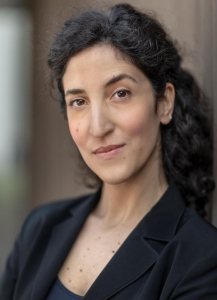Negotiating Reparations after Hitler: A Critical Jurist’s Journey Through the Politics of Repair
It is widely assumed that the reparations that Germany paid to Holocaust survivors and the state of Israel ‘established a milestone in international morality’, as former Nuremberg prosecutor Benjamin Ferencz put it – one that is ‘exemplar of successful reparations’ programmes, as MIT political scientist Melissa Noble wrote. This assumption is based upon important facts. In the aftermath of the Second World War and the Holocaust, the Federal Republic of Germany set up what is to date the most extensive reparations programme to deal with the aftermath of mass human rights violations and genocide. But how did this programme take shape – and what did it feel like to witness, and to try to shape, its successive metamorphoses? Based on a series of handwritten diaries kept by a little-known German jurist, Negotiating Reparations after Hitler adopts a biographical approach to tackle these questions. These sources have never been made available to historians until now. They reveal Otto Küster’s experiences as a ‘critical jurist’ – someone who was sacked from his position as judge in 1932 and from the Ministry of Justice in 1954, because of the criticism he waged against the political circles of his time(s) – and who kept working on reparations-related questions for much of his professional life. While understandably very personal, his diaries 4sketch the contours of much broader questions that are still with us today: what does it take to repair harm in the aftermath of collective violence?
Dr. Lorena De Vita is Associate Professor in the History of International Relations at Utrecht University. She will use her time as a ZZF Leibniz Summer Fellow to write the monograph, based on the Wording Repair project that she is leading at Utrecht University.
During her stay at the ZZF, she will be conducting research in Department II: Knowledge – Economy – Politics.

